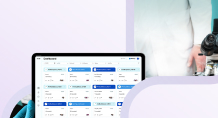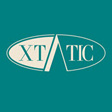Software, powered by AI or machine learning, seems to be one of the key components of the future. The health sector has not stayed passive in this new environment – rather healthcare providers have begun searching for ways to use this tech in hospital management.
Consequently, the global digital health market worth USD 241.88 billion in 2023, is projected to grow at a CAGR of 23.05% between 2024 and 2033. One of the biggest trends in the market is smart hospital software.
What Is Smart Hospital Software
Smart hospital software is a solution that helps a facility optimize its administrative tasks and health services or help with patient care. It is not software with a focus on one specific task but a comprehensive management platform that can influence almost all hospital procedures.
Such software uses the most advanced technologies such as Artificial Intelligence (AI), the Internet of Things (IoT), machine learning or big data analytics to help smart hospitals deliver care quicker, with fewer manual tasks and human errors. Ultimately, this reduces costs and improves patient satisfaction.
A proper understanding of smart software will be possible when compared to traditional healthcare operations.
Key Features of Smart Hospital Software
All hospitals historically relied on paper to hold the data that is continuously generated – medical results of patients, lab results, billing information, etc. Many hospitals still rely on paper, and others that have begun storing data digitally still rely on human services to collect and process these huge datasets.
While going digital is a big step, the advantages of digitization are not completely realized if appropriate mechanisms are not in place.
However, this manual process is slow, and prone to human error and bottlenecks, diverting the attention of doctors away from treatment and into administration. Inaccurate document filing, lost records, and delays in medical care can result from manual data entry.
Yet, the new healthcare innovations in software bridge that gap, allowing innovative establishments in the healthcare industry to invest in automating many of these tasks and streamline workflows with these features.
Electronic Health Records (EHR)
Integrating Electronic Health Records (EHR) is a fundamental component of Smart Hospital Software.
EHR systems allow healthcare providers to rapidly access detailed medical histories, treatment plans, and test results by combining patient data into a single, easily accessible digital format. This function helps improve collaboration between various departments and healthcare facilities, in addition to improving the accuracy of patient records. EHRs save time and money by centralizing patient data, which eliminates the need for unnecessary testing and procedures.
Additionally, EHR systems help with continuity of treatment, particularly for patients who see several specialists for chronic diseases. Ensuring that all parties involved in a patient’s treatment are in agreement is made possible by the smooth communication of patient information among healthcare professionals.
EHRs also facilitate improved documentation procedures by allowing medical professionals to maintain comprehensive, accurate, and readily updated treatment history records.
Patient Management Systems
Patient management systems that can manage a variety of administrative responsibilities are part of smart hospital software. Scheduling, admissions, discharge planning, and patient tracking are all automated by these systems.
Hospitals may decrease errors, free up staff time for other tasks, and guarantee that patients receive timely and effective care by optimizing these procedures. Automated scheduling guarantees effective appointment management while cutting down on patient wait times.
Additionally, these technologies are essential for bed management, assisting hospitals in making the best use of their available space. Hospitals are better able to distribute beds and prevent overcrowding when they track patient admissions and discharges in real time. Furthermore, by sending out appointment reminders and updates, lowering the number of no-shows, and raising patient satisfaction levels overall, patient management systems can enhance the patient experience.
Clinical decision support
Smart Hospital Software incorporates AI-powered advanced clinical decision support capabilities. These technologies enable doctors to make more informed judgments by analyzing patient data and producing evidence-based recommendations for treatment options.
The software can forecast patient demands, spot any issues, and recommend the best courses of action by utilizing AI algorithms that lead to better patient care. This ability to foresee outcomes is especially helpful in the management of chronic illnesses and the avoidance of consequences.
By offering recommendations and protocols based on the most recent medical research, clinical decision support technologies also contribute to the standardization of care. Regardless of the clinician they encounter, all patients will receive high-quality care because of this standardization.
These technologies can also notify medical professionals of possible problems like drug interactions or allergic responses, improving patient safety and lowering the possibility of unfavorable outcomes.
Telemedicine
Smart hospital software is starting to come with telemedicine features as standard. Patients can obtain care from the comfort of their homes because of these platforms’ ability to facilitate consultations and monitoring outside of hospital walls.
In addition to increasing access to healthcare services, telemedicine also eases the burden on hospital resources, especially in rural or underdeveloped areas. This feature is especially helpful in times of public health emergencies, like the COVID-19 epidemic, when it’s critical to limit physical contact.
By giving individuals with chronic diseases a convenient means of routinely consulting with their healthcare providers, telemedicine also improves continuous care for these patients. Improvements in patient satisfaction and health outcomes may result from this continuity of care.
Additionally, telemedicine platforms can be integrated with electronic health record (EHR) systems to guarantee that all patient contacts are recorded and available to medical professionals.
Management of resources and inventory
For hospitals to run smoothly, medical equipment and supplies must be managed effectively. Sophisticated inventory and resource management systems that monitor the use and accessibility of pharmaceuticals, equipment, and medical supplies are part of the software that a smart hospital requires.
These methods guarantee that resources are available when needed, cut down on waste, and assist in preventing shortages. By guaranteeing that essential goods are always available, automated inventory management lowers the possibility of patient care disruptions.
Systems for resource management also assist in monitoring medical equipment use and upkeep. Hospitals can plan routine maintenance and prevent unplanned malfunctions by keeping an eye on equipment utilization, guaranteeing that every instrument is operating at peak efficiency.
Furthermore, by utilizing past consumption patterns to predict future inventory requirements, these technologies help hospitals develop better informed plans and budgets.
Understand What Smart Hospital Software is Right for You Speak to an expert today, and see how our on-demand IT talent and augmented teams can efficiently deliver value at every step of your roadmap.

Analytics and reporting
Tools for reporting and data analytics are crucial parts of smart hospital software. Large-scale data analysis is done by these tools to provide insights into patient outcomes, hospital performance, and operational effectiveness.
The program assists hospital administrators in making data-driven decisions to enhance overall performance and improve patient care by offering comprehensive reports and dashboards. These insights have the power to spot patterns, reveal inefficiencies, and point out areas in need of development.
Analytics solutions track key performance indicators and clinical guideline compliance, which helps to assist quality improvement activities. Through the provision of trend analysis and real-time data, these solutions help hospitals promptly identify problems and take appropriate action. Predictive analytics can also assist hospitals in anticipating future trends and preparing for possible obstacles, assuring long-term growth and sustainability.
For these reasons, smart hospital software is a huge development for clinician workflows and patient care. Hospitals that have taken up the software can expect several benefits.
Benefits of implementing smart hospital software
Giving a concrete benefit to a solution as versatile as smart hospital software may be challenging. After all, when the functionalities can be as widely applicable as being a data center for HER or to handle individual patients without putting further pressure on an individual doctor.
Nevertheless, some common benefits that spring up are:
- Enhanced efficiency: Hospital efficiency is greatly increased by automating clinical and administrative operations. Healthcare professionals can concentrate more on patient care rather than paperwork thanks to Smart Hospital Software’s reduction of manual processes and minimization of errors.
- Improved patient outcomes: Healthcare professionals are able to give more precise and individualized care when they have instant access to extensive patient data and cutting-edge clinical decision support technologies. By analyzing patient data and anticipating any difficulties, the program makes sure that interventions are carried out on time and effectively. This ultimately improves patient outcomes, including in critical cases.
- Cost savings: Smart hospital software aids medical facilities in minimizing waste, maximizing resource use, and avoiding expensive mistakes. Hospitals can drastically cut operating expenses by automating scheduling, inventory control, and other administrative duties. Over time, lower healthcare expenditures may result from the software’s enhanced effectiveness and patient outcomes.
- Better resource management: Maintaining operational efficiency in a hospital requires effective management of its resources, which include hospital rooms and beds, machinery, medical devices, and employees. Hospitals may more efficiently manage resources and prevent bottlenecks with the help of smart hospital software, which offers real-time insights about resource availability and usage.
- Enhanced patient experience: By streamlining processes and improving the quality of care, smart hospital software brings an advantage for the overall patient experience. Patients benefit from shorter wait times, more personalized care, and greater convenience through telemedicine services. Improved communication and coordination among healthcare providers also contribute to a more seamless and positive patient journey.
A hospital will be hard-pressed to not at least contemplate implementing such software. After all, digitalisation is inevitable for most if not all healthcare. The only drawback is that the software is quite comprehensive, and several steps will be needed for its implementation
Main concerns with Smart Hospital Software Implementation
Understandably, many clinicians may have some concerns about the implementation of such software as they may operate with older devices. This section will cover some solutions for a seamless integration with legacy systems like laboratory information systems (LIS), and radiology information systems (RIS).
Compatibility
Making sure the new software and current systems are compatible is one of the main integration concerns. It’s possible that legacy systems employ proprietary file formats or antiquated technology that makes them difficult to integrate with contemporary software.
Performing an extensive evaluation of current systems and creating a thorough integration strategy is a typical solution. To guarantee a smooth transition, this strategy should cover resource allocation, data migration procedures, and compatibility issues.
Data migration
It might be difficult and time-consuming to transfer massive amounts of patient data from old systems to the new program. To prevent any interruptions in patient care, it is essential to guarantee data correctness and integrity during migration.
Many of these worries can be allayed by implementing the new software gradually, beginning with trial programs in select departments and working your way up to a full-scale rollout. By allowing for testing and validation, this strategy reduces the chance of interruptions and guarantees that any problems be fixed quickly.
Staff training and support
For the new software to be used properly, administrative personnel and healthcare practitioners must get sufficient training. Lack of familiarity with the new system and resistance to change might impede integration and reduce overall efficiency.
To guarantee that administrative workers and healthcare practitioners feel comfortable using the new program, give them thorough training and support. Continuous assistance and training can help handle any problems that crop up and guarantee a seamless transition.
Security
Software for smart hospitals must address security risks, which include hacking attempts that target private patient data, illegal access, and data breaches. In order to reduce these dangers, strong remedies are required.
Data security during transmission and storage is ensured by putting modern encryption algorithms into practice. Access controls, such as multi-factor authentication, limit authorized personnel’s access to data. Frequent vulnerability assessments and security audits assist in locating and addressing such threats.
Collaboration with vendors
Many other issues may arise when implementing the software. For some, the software may not exactly match their expectations or have hidden costs that go beyond the initial budget.
Work closely with a healthcare software development company to resolve incompatibilities and guarantee that the updated software satisfies the unique requirements of the institution. Vendors can offer invaluable assistance and direction all through the integration process.
Thankfully, after successfully implementing the software, there will be no issues other than security and maintenance. All of which further underlines the need for a trusted IT specialist.
Deliver a world-class Healthcare project–with high-skilled, seamlessly integrated IT talent Learn how from our consultants. We work with clients worldwide.
Conclusion
With so many excellent benefits waiting for every healthcare provider, there is little reason not to turn their hospital smart. All that stops clinicians is the process of implementation.
Thankfully, the market already has an easy solution – a trusted business partner.
Among such vendors, one of the leading companies is BGO Software.

















